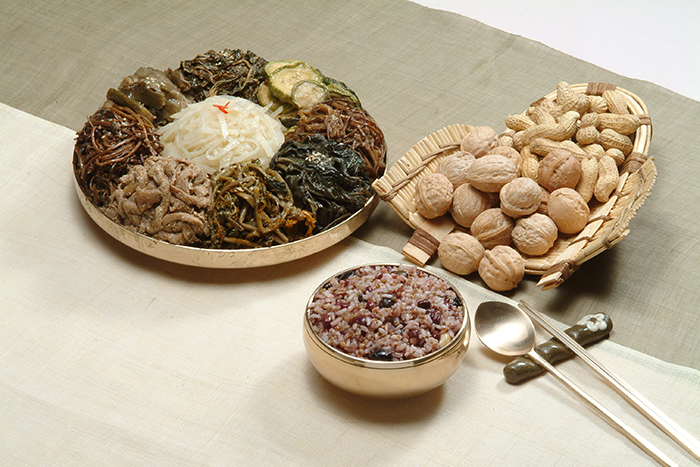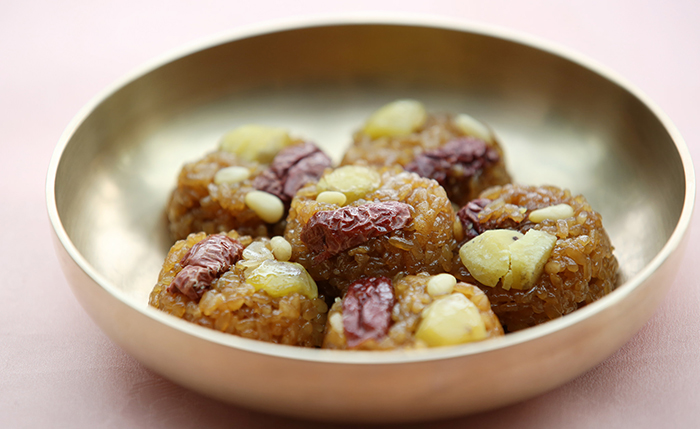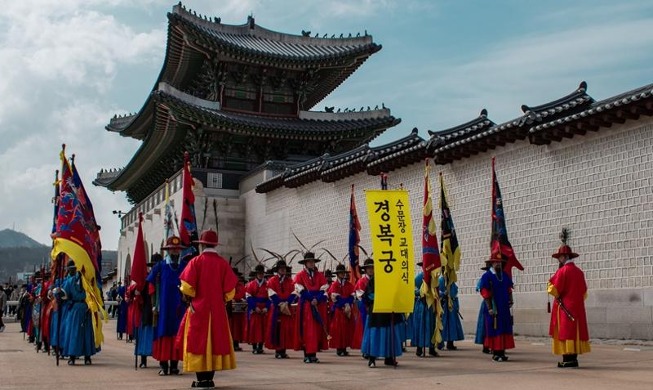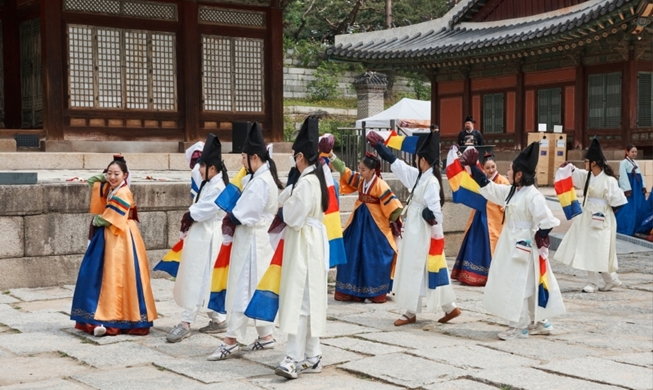-
 Korea.net's 24-hour YouTube channel
Korea.net's 24-hour YouTube channel- NEWS FOCUS
- ABOUT KOREA
- EVENTS
- RESOURCES
- GOVERNMENT
- ABOUT US

People enjoy and share ogokbap five-grain rice along with various vegetables, known as jinchae (진채) and nuts, on Jeongwol Daeboreum, the first full moon of the new lunar year, the 15th day of the first lunar month, in the hopes that they will stay healthy throughout the whole year. (Institute of Traditional Korean Food)
By Xu Aiying and Sohn JiAe
Each year, people celebrate the first full moon of the new lunar year, known as Jeongwol Daeboreum (정월 대보름), which falls on the 15th day of the first lunar month of the year.
The day has the biggest full moon of the year, rising up in the sky, and is celebrated here in Korea as much as is Seollal Lunar New Year’s.
On Jeongwol Daeboreum, people traditionally enjoy a series of dishes in the hope for a good harvest, health and welfare throughout the year.
In ancient times, people made ogokbap (오곡밥) rice with five grains, a meal they rarely enjoyed in those times and which included rice, millet, sorghum, red beans and beans. They were hoping for a good harvest and for their well-being over the year ahead.
The rice is usually served with an assortment of fried seasoned vegetables, known as jinchae (진채), which were gathered and dried after the harvest.
People believed that eating this food would help them suffer less from the heat in the summer.
They also ate yaksik (약식) made by boiling glutinous rice with dates, chestnuts and ginkgo nuts, mixing them with honey and soy sauce. Meaning “food that is medicinal,” the dish can make up for any nutrients that they were lacking.

Yaksik, a representative dish on Jeongwol Daeboreum, the first full moon of the new lunar year, is made by mixing steamed glutinous rice, dates, chestnuts and pine nuts with honey. (Kore.net DB)
People also eat walnuts, peanuts, pine nuts and gingko nuts as part of the custom on the morning that day.
Known as bureom kkaegi (부럼 깨기), the tradition has long been performed in the hopes that it would keep the eaters safe from boils and that their teeth would be in good shape during the year.
Before breakfast, people drink a cup of liquor served cold, called gwibalgisul (귀밝이술). People in times past believed that if they drunk this alcohol, it would bring sharp and healthy ears and give the blessing of hearing a lot of good news all year around.
xuaiy@korea.kr













